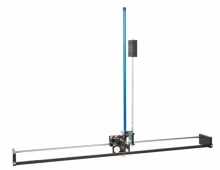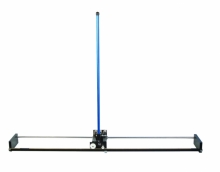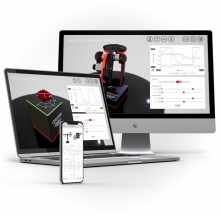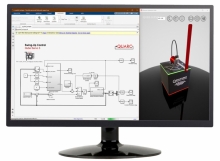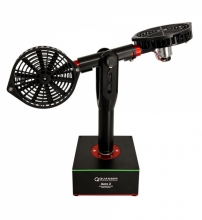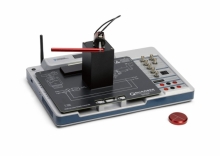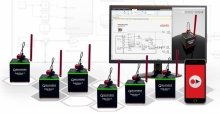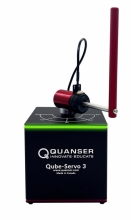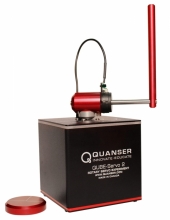The linear flexible inverted pendulum challenges students to gain advanced modeling and control experience by controlling both the damping of a flexible link, and an unstable inverted pendulum.
Control Systems
The standard in controls teaching and research.
Modeling & controls lie at the core of emerging technological breakthroughs. From drones to reusable rockets to self-driving vehicles, the fundamentals of modeling & control are a critical skill for engineers to compete and innovate.
Process Control
The modern industrial systems that are fundamental to modern automation and manufacturing processes require specialized control systems to perform and manage their daily operations. Quanser offers a variety of plants that can be used to teach the key elements of modern process control including cascade control with the Maglev and Ball and Beam systems as well as regulator design with the Coupled Tanks.
Classic Systems Control
The classic progression of control systems education begins with the fundamentals of modeling and designing control plants for linear systems. Quanser offers a diverse collection of plants that can be used as ideal platforms to offer students experience using classic control principles. These plants offer basic dynamics that range from rotary to linear motion.
Modern Systems Control
Quanser has a collection of plants that can be used to show how a modern approach to control systems allows for the creation of precise controllers for complex systems with higher-order dynamics. These plants include both dynamically complex plants such as the linear inverted pendulum, and double pendulum, as well as plants such as the active suspension that require the use of both state-space modeling to express the complex coupled dynamics of the system.
Unstable Systems
Some of the most exciting emerging technologies from bipedal walking robots to reusable rockets requires the design of controllers for unstable systems. Quanser offers several plants that give students an experience creating control systems for directly analogous dynamic systems.
-
-
The Linear Servo Base Unit is the fundamental unit for the Quanser linear motion platform. It is ideally suited to introduce basic control concepts and theories on an easy-to-use and intuitive platform.
-
The Quanser Magnetic Levitation device is a single degree of freedom electromagnet-based system that allows users to levitate a ball vertically up and down. The overhead electromagnet generates an attractive force on the metal ball that initially sits on the post. The position of the ball is measured using a photo-sensitive sensor embedded inside the post. The system also includes a current sensor to measure the current inside the electromagnet’s coil.
-
QLabs Controls is based on Quanser physical plants and is accompanied by a comprehensive curriculum covering topics such as modeling, speed and position control, aerospace control, instructor resources, and tools to manage student access and monitor their progress.
-
QLabs Virtual QUBE-Servo 3 is a fully instrumented, dynamically accurate virtual twin of a classic QUBE-Servo 3 system. It behaves in the same way as the physical hardware and can be measured and controlled using MATLAB®/Simulink® and other development environments.
-
The Aero 2 is a fully integrated aerospace lab experiment. It is designed for teaching controls and introducing aerospace concepts at an undergraduate level with applications for research at the post-graduate level.
-
Investigate introductory and advanced controls.
-
Quanser's Qube Teaching Studio features cutting-edge hardware, software, digital replicas, and a mobile app, so educators gain a complete teaching package. The Qube-Servo 3, known for reliability and performance, forms the foundation of hands-on learning. The digital-twin technology offers virtual accessibility, freeing students from lab constraints. Supported by QUARC and Quanser APIs, seamless control system development across platforms is ensured. Complemented by the 'Experience Controls' digital textbook, instructors access interactive resources for an unparalleled teaching experience.
-
The Quanser Qube-Servo 3 is a portable, fully integrated servomotor platform designed specifically for teaching control concepts at the undergraduate level. The system is equipped with a high-quality direct-drive brushed DC motor, two encoders, an internal data acquisition system, and an amplifier.
-
The Quanser QUBE™-Servo 2 is a fully integrated, modular servomotor lab experiment designed for teaching mechatronics and control concepts at the undergraduate level.

